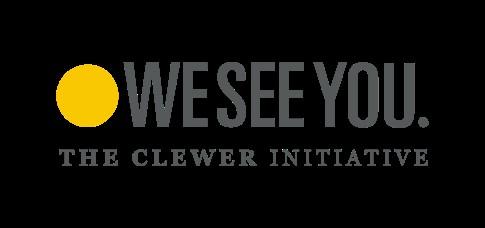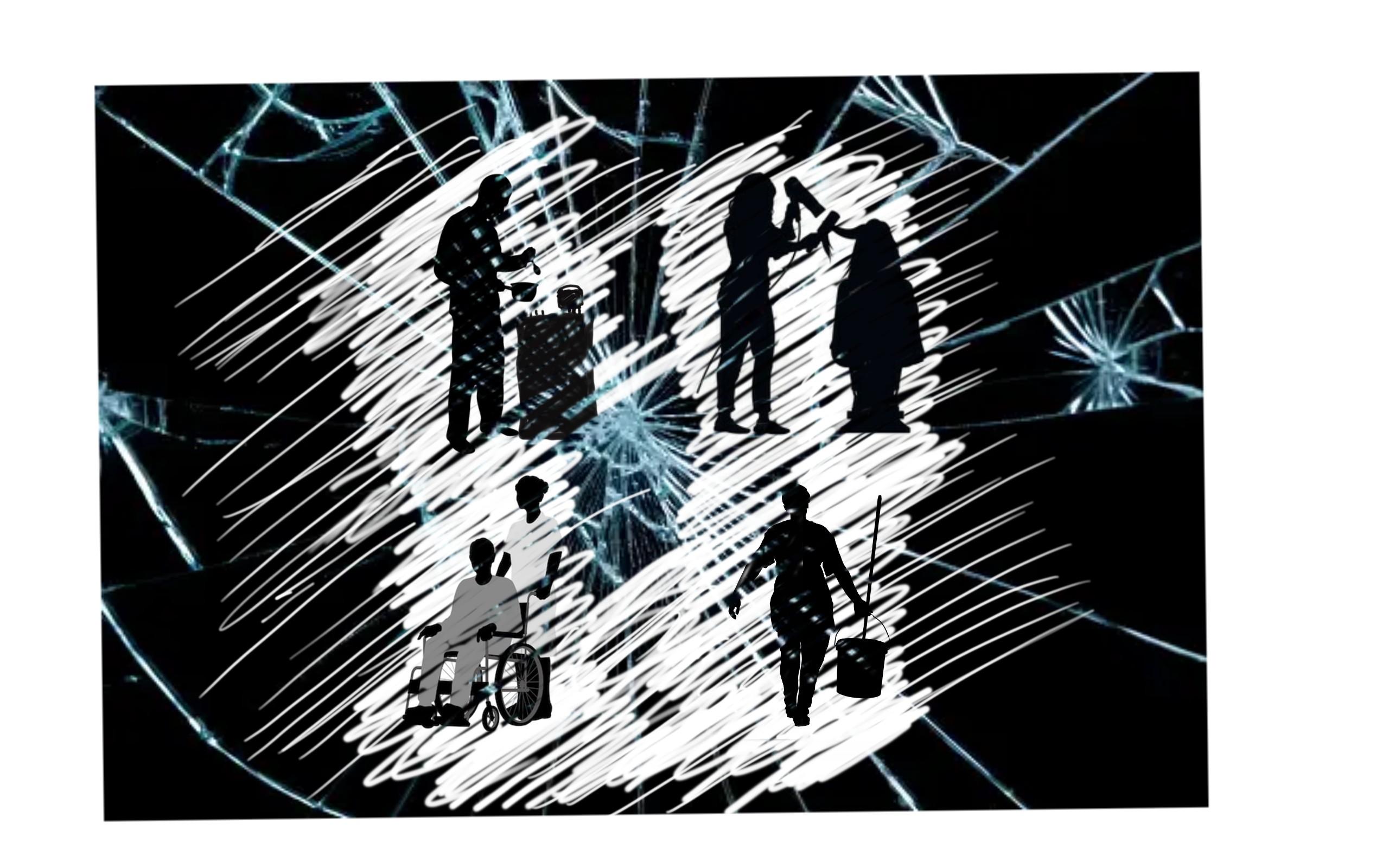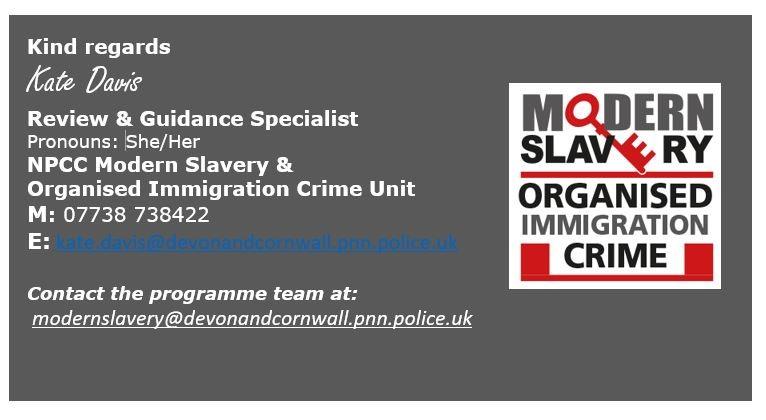






19/02/2025

Overview of Introduction
International definition for human trafficking




Domestic servitude

• Forced to work in a private household
• Exploited by a partner or relative
• Childcare, cleaning, ironing and all household tasks
• Long hours, little to no pay

Sexual exploitation labour exploitation
• Non-consensual and abusive sex acts
• Child sexual exploitation by group or individual
• Sex work in fixed or changing location
• Trafficking for personal gratification

• Made to work long hours, in hard conditions
• No training or equipment
• Forced to hand over wages to traffickers

Criminal exploitation

• Forced to participate in illegal activities: pickpocketing, shop-lifting, cannabis cultivation, begging
• Increase in child criminal exploitation or ‘county lines’ (no force required)
• Financial exploitation, sham/forced marriages


No passport or ID
Movement controlled

Limited social contact
Controlled by another
Poor language skills
Reluctant to give details of accommodation
Bonded by debt
Money deducted from salary for food or accommodation
Lack of access to medical care
Unexplained injuries
Dependent on others
substance dependent



Exploitation of care workers


Safeguarding risks to residents
Risk in organisational compliance

• Financial
Withholding of wages, Debt bondage
Excessive fees for breaking contract
• Accommodation and hours
Made to work excessive hours and without days off
Living conditions often poor and overcrowded
• Confinement or restricted movement
Transport arranged by exploiter – also charged and deducted Sometimes prevented from going to places of worship or medical appts

• Monitoring Via CCTV or GPS - or phone calls or text messages Important documents withheld or destroyed
• Threats
to revoke certificates of sponsorship, to be deported, to be reported to the police or DBS or to family members
Physically or verbally abused if they complain
• Isolation
Prevented from communicating friends or






Below are possible examples that you may witness
You overhear a care worker in the staffroom explain to a colleague that she is in debt to care recruiter, is isolated, no food etc
You hear a care worker being shouted at over her mobile phone, She is visibly upset stating she needs her passport back

You notice a care worker has bruising to her arms and looks tired, wearing the same clothes daily. Your colleague states they have noticed she works 7 days per week

are not allowed to have your Identification Documents are not allowed to leave your accommodation or place of work freely have been deceived with regards to visa fees and are being forced to pay back large amounts of money to pay for the visa and travels costs. have been promised hours that never materialised have to pay extra charges to others in order to keep your job and/ accommodation live in accommodation that is cold, damp, unclean and poorly equipped are working longer hours than you expected and don’t have adequate breaks and days off are not getting the pay you were expecting or receiving pay that doesn’t cover all your costs and needs don’t feel safe and/or have experienced violent or verbal threats are feeling isolated, lonely and scared




YOU have experienced any of the statements listed, please contact as soon as possible:
The Modern Slavery Helpline (08000 121700) run by the charity Unseen. You can report anonymously if you prefer. Or The Police (999 for an emergency 101 for non-emergency)


1. Recognise that Modern Slavery is present in the Care sector and in our communities
2. Raise awareness through sharing this information and through the flyers

3. Beware of the signs of someone who is caught up modern slavery
4. Know that you are not expected to investigate or act on behalf of the Police

5. If you have concerns The Modern Slavery Helpline run by the charity Unseen 08000 121700) Or The Police (999 for an emergency 101 for non-emergency)





606% increase in the number of modern slavery care sector cases from 2021 to 2022.
712 potential victims of modern slavery were indicated in the care sector in 2022, comprising 18% of all potential victims indicated through the Helpline.

Risk of delivering poor quality of care due to the lack of proper training, limited language skills, being overworked, low morale

Risk that exploited unqualified workers recruited as carers present a safeguarding risk
Risk of residents suffering distress and discomfort from lack of adequate physical and emotional care




• Acknowledging that prevention starts at the top.
• Emphasising the responsibility of leadership in setting the tone.
• Promoting transparency, accountability, and ethical decision-making.
• Ensuring governance structures that prioritise safeguarding and human rights.
• Defining and upholding clear ethical principles.
• Embedding respect for human rights in the organisation's values.
• Aligning practices with a commitment to combating modern slavery.

• Demonstrating a strong stance against exploitation and unethical conduct Source : Sandwell Anti- Slavery partnership Responding to Modern Slavery

• Recognising that every member of the organisation plays a role.
• Providing comprehensive training on modern slavery awareness.
• Ensuring that employees and contractors understand their responsibilities.
• Encouraging a culture of vigilance and reporting.









☐ Are there well-defined procedures for staff to report suspicions or concerns related to modern slavery?
☐ Does the organisation offer confidential channels for reporting, protecting whistle-blowers from potential retaliation?
☐ Are reporting mechanisms easily accessible to all employees and contractors?
☐ Does the organisation collaborate with local law enforcement agencies when modern slavery concerns are raised?
☐ Is there cooperation with relevant regulatory bodies or government agencies involved in anti-slavery efforts?
☐ Is there a process for sharing relevant information with authorities while respecting privacy and confidentiality?
☐ Are staff trained to identify potential victims of modern slavery and to handle such cases sensitively?
☐ Does the organisation have links to support services for victims and survivors of modern slavery?
☐ Are safeguards in place to protect the safety and well-being of potential victims, including access to counselling and legal support
Source : Sandwell Anti- Slavery partnership Responding to Modern Slavery in the Care sector


The former Home Secretary James Cleverly on the 4th December 2023 gave a statement to the House of Commons on legal migration. In this statement he set out the requirement for "care firms in England to be regulated by the Care Quality Commission in order to sponsor visas".
This will mean that only health and care organisations that fall under the scope of the CQC regulations are able to sponsor care worker visa applications.
All providers of health and social care who deliver services that fall within the scope of our regulation as set out under the Health and Social Care Act 2008 are already required by law to be registered with CQC.





Source : Sandwell Anti- Slavery partnership Responding to Modern Slavery in the Care sector

Code of practice for international recruitment:
Code of practice for the international recruitment of health and social care personnel in England - GOV.UK (www.gov.uk)
International recruitment toolkit:
https://www.skillsforcare.org.uk/resources/documents/Recruitment-s upport/International-recruitment-toolkit-March-2024.pdf
Tips for staff retention:
https://careprovideralliance.org.uk/workforce-top-tips-for-retention-c pa-lga-briefing
Report on prevention of exploitation in the care sector:
Joint Position Paper on Preventing Exploitation in the Adult Social Care Sector – FLEX (labourexploitation.org)
Directory of licensed Health and Social Care Visa sponsors:
https://autonomy.work/care-visa-sponsor-database/



It ought to concern every person, because it is a debasement of our common humanity.
It ought to concern every community, because it tears at our social fabric.
It ought to concern every business, because it distorts markets.
It ought to concern every nation, because it endangers public health and fuels violence and organized crime.
I’m talking about the injustice, the outrage, of human trafficking, which must be called by its true namemodern slavery.

